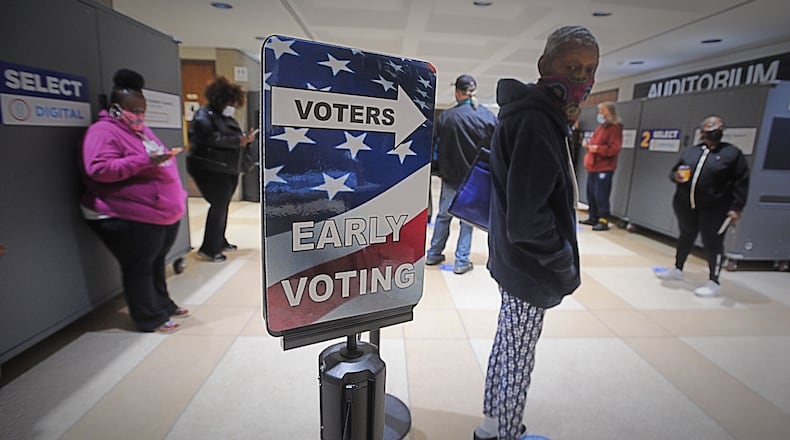County Recorder Brandon McClain initiated a free veterans’ identification card program in 2018 for nearly 60,000 area veterans.
“The impact this new law will have on prospective voters who are veterans in Ohio is extremely concerning,” McClain said. “Veterans who may be homeless, on a fixed income or experiencing financial hardship will unnecessarily endure a financial burden to be considered an eligible voter. Haven’t they sacrificed enough?”
McClain said he intends to speak with legislators regarding his concerns.
While the bill began last year as a measure eliminating most August special elections, the Ohio Senate amended it to introduce photo identification requirements.
“Securing the integrity of our elections must be our top priority,” state Sen. Niraj Antani, R- Miamisburg, said last month. “We must undertake every effort to prevent voter fraud, and requiring a photo ID to vote is a huge step in ensuring that.”
Opponents of the bill argued otherwise.
“The timing is almost as alarming as the provisions in the bill,” said Collin Marozzi, deputy policy director at the Ohio American Civil Liberties Union. “When you don’t have a problem in terms of voter impersonation, and you are creating additional barriers that will make 1 million Ohioans jump through several hoops in order to comply with it, that has an opposite effect on election integrity.”
“The requirement is to have identification with your photo and legal name on it in order to vote, including a U.S. military ID,” Antani told this news outlet. “Ironically, in order to get an Ohio veteran ID card, most of the eligible documents you have to submit are the same that are now eligible to vote. So in order to get an Ohio veteran ID card, you essentially have to have a photo ID.”
Antani added: “Recorder McClain should leave politics to those who are good at it and go back to doing his job.”
A spokesman for Ohio Gov. Mike DeWine referred questions to the bill’s sponsors. But the spokesman, Dan Tierney, said the bill provided for Bureau of Motor Vehicle-issued state identification cards as acceptable voting photo IDs available at no cost.
“What we’re doing is we’re saying anyone who does not have a driver’s license in Ohio can get a photo ID at the BMV — free. Free, free free,” the Ohio Capital Journal quoted state Rep. Bill Seitz, R-Cincinnati, as saying in legislative debate last month.
“By and large, Ohioans use their driver license as photo ID as historic practice,” Tierney said.
In an interview, McClain said his understanding is that veterans must show a “100% service-connected disability” to receive a free state ID at the BMV. “Many veterans are not (disabled),” he said. “So what about those?”
Antani counters that the new law permits a free ID card for anyone over 17, doing away with the disability requirement.
McClain said that veterans with whom he has spoken are also concerned that temporary homelessness may make offering an address impossible for some. At the BMV, applicants need to show “permanent residency” status, he said.
“To me, it’s not politics,” McClain said, responding to Antani. “It’s essentially standing up for the people in your community.”
The Board of Elections does not track the number of voters who use the county veterans ID card, McClain said.
About the Author

